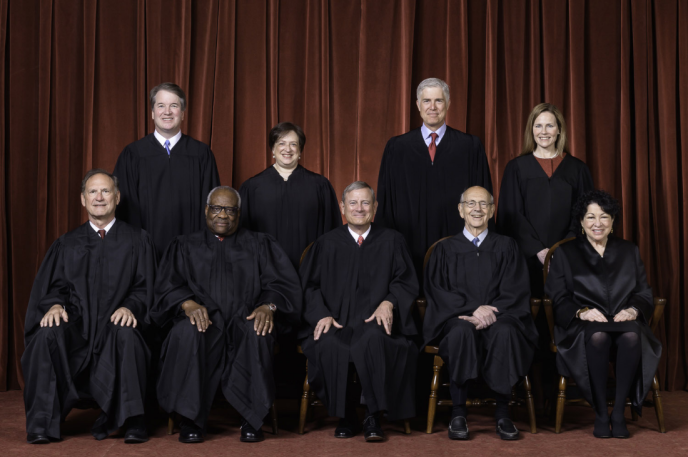
Nation’s highest court bound to get skeptical eye from Blacks
October 5, 2021
This blog was written as part of Charlotte Mecklenburg Library's Black Lives Matter program initiative. Learn more about the program and corresponding events here.
It is October, and the Supreme Court is back in session garnering its expected news headlines. Some are watching, though, with a heightened sense of concern and Irv Gornstein, executive director of Georgetown University’s Supreme Court Institute, is one of them. He fears the overwhelming switch in recent years to a majority conservative court can hurt the court’s credibility with the public.
“I think we may have come to a turning point. If within a span of a few terms we see sweeping right-side decisions over left-side dissents on every one of the most politically divisive issues of our time—voting, guns, abortion, religion, affirmative action—perception of the court may be permanently altered,” Gornstein said in an interview with the Associated Press.
Point taken. Would those decisions fairly represent the greater American public? Would they be respected and upheld?
Gornstein’s observations may be spot on or off the mark. Regardless, Supreme Court decisions impact the public for decades, and Black U.S. citizens would be significantly affected. The “divisive issues of our time” mentioned by the professor can jolt Black Americans in safety, economic status, and citizenship conditions. Affirmative action is readily associated with African Americans as a court issue. Still, voting rights is an old policy fight that has received renewed attention, detailed in a Library blog last month.
One book in the Charlotte Mecklenburg Library collection, on Account of Race: the Supreme Court, White Supremacy, and the Ravaging of the African American Voting Rights by Lawrence Goldstone, examines the Supreme Court’s past decisions have not spread the right to vote for Blacks. Book critics commend accessible writing and in-depth research. Doubtless, those unfamiliar with the Court’s decision-making past may come to understand how it can operate and remain a substantial force in public conduct.
Goldstone’s book is included in a new booklist about the power the court has specifically affecting Blacks. The booklist consists of a separate book about the only Black Supreme Court justices, the revered, late Thurgood Marshall and his successor, the controversial Clarence Thomas, the current longest-serving justice.
--
This blog was written by Lawrence Turner, adult services librarian at South County Regional Library.
